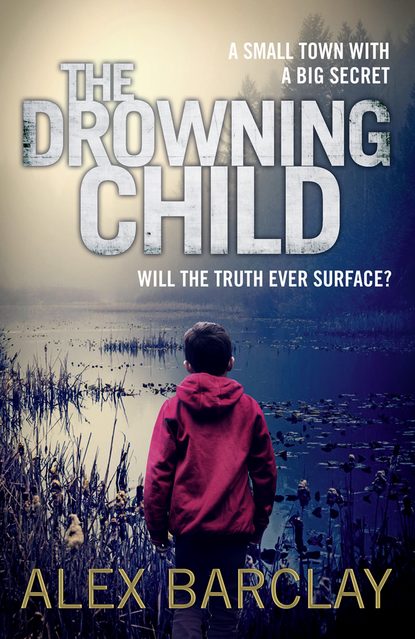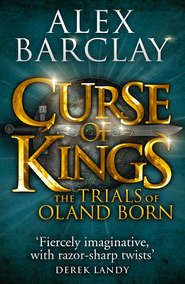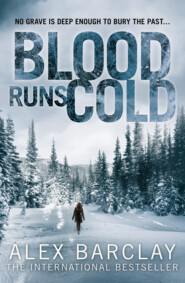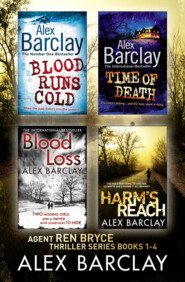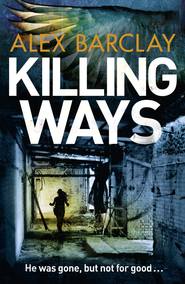По всем вопросам обращайтесь на: info@litportal.ru
(©) 2003-2024.
✖
The Drowning Child
Автор
Год написания книги
2019
Настройки чтения
Размер шрифта
Высота строк
Поля
‘Clyde doesn’t do himself any favors,’ said Wiley. ‘He showed up for work Monday to Friday in reasonably good shape, didn’t go too wild on weeknights. But he drank heavily on the weekends. Once you’re propping up a bar regularly, slowly drinking your way into oblivion, well, you’re telling people how to remember you. It’s all about perception, really, isn’t it?’
Jesus.
‘I’ll leave you to it,’ said Wiley. He walked back toward the gates.
‘What is Clyde Brimmer’s story?’ said Ren.
‘A sorry one,’ said Ruddock. ‘We were in school together. A group of us hung out, usual stuff: playing football, going swimming, duck-diving in the lake. We were pretty innocent kids. But Clyde went off the rails when he was seventeen, when his little sister died. He started drinking, doing drugs. Got off drugs eventually, but kept on drinking. He’d get sober every now and then, then he’d fall off the wagon again. The longest he was sober was when he did his embalmer training. He was lucky he managed it at all. It would break your heart. Bad things just seem to happen a lot around Clyde. It’s like life is always throwing things at him.’
You are so endearing. And I love pockmarked skin.
‘What happened to his sister?’ said Ren.
‘She fell through one of the decks at Lake Verny. The timber was rotten. Clyde was custodian at the time. It was the spring of ’84. He had already said there was a problem with the deck and the jetty of that cabin, but no one listened to him. He was concerned that sub-standard timber was used, and that it was unstable. He told the owners, but they were from out of town and said they’d get it fixed later: they wanted to enjoy their next break without having any construction work going on. This one day, Lizzie – Clyde’s sister, she was only ten years old – was hanging around with him, because their parents were gone to a wedding and he had to watch her. She brought a couple of her little friends along, they’d been playing around the cabins. Then she disappeared. She was found floating in the water … apparently she stepped right through the deck. It tore up her femoral artery, that was it, she bled out just like that. Clyde took it real bad. He always said if he had just fixed that deck when he wanted to, it never would have happened. He felt he didn’t try hard enough to get people to listen. It’s why he gets so agitated still if he feels something is unsafe, and people aren’t listening. It drives him crazy. And you know something? He didn’t even quit his job. He still stayed looking after the cabins for a long time after the accident, for whoever hung on to them. It was a control thing, I guess. He didn’t want to put anyone else through what his family went through.’
‘That is so sad,’ said Ren.
Gary turned to Ruddock. ‘Mind if Ren and I take a look at last night’s interviews with the Veirs?’
‘Sure,’ said Ruddock. ‘Follow me.’
Ruddock found Gary and Ren an empty room and left them to watch the videos of first John Veir, then Teddy, both carried out by Ruddock and Wiley together.
Ruddock was an impressive interviewer, thoughtful, measured, bright and sharp, with the perfect demeanor to make two traumatized parents as comfortable as they could be with a series of uncomfortable questions while their only child was still missing.
Wiley didn’t ask any questions, even though, at times, it looked like he was struggling to stay quiet.
I wonder were you under strict instructions from Ruddock. Or do you just not give a fuck?
There was a knock on the door and Ruddock walked in. ‘Sign-in for the search is kicking off, if you’d like to come out.’
‘OK,’ said Gary.
‘So,’ said Ruddock, nodding toward the screen. ‘What do you think?’
‘They’re both lying,’ said Gary and Ren at exactly the same time.
8 (#ulink_c755bead-ea80-5b4f-b883-199ccf216635)
Jimmy Lyle was driving, happily, freely, down the west coast. Home, in whatever altered state he had left it, was far enough behind him to bring comfort. He was taking quiet roads, darker ones, roads less traveled. He didn’t want to be pulled over, he didn’t want the trunk of his car to be searched.
The day he had the shit beaten out of him by the pond was coming up on Valentine’s Day: after the operations, as he looked around the hospital with his unbandaged eye, he caught sight of heart-shaped balloons, bunches of flowers, cards, an air of buoyancy. Jimmy hadn’t a face for Valentine’s Day, hadn’t a heart for love. He had seen it go wrong too soon. His wild and beautiful mother married his sensible teacher father. She walked out on them when Jimmy was eight years old, his father’s heart spiked on her stiletto as she made her glamorous exit. She had loved Jimmy deeply, and suddenly she was gone, and his father looked at him across the table of their first dinner alone like he was a dog who he now needed to find a home for. He kept him, though. Jimmy made sure to be indispensable. He cooked his father breakfast the very next morning and Outside Jimmy and Inside Jimmy were born; one the white, tranquil, opaque shell, the other the dark, crimson, screaming, angry, bleeding, weeping soul it covered.
The day Jimmy had left the hospital, he went via the cancer ward. He stole some things, some ‘personal effects’. He found an empty room and changed. He could barely look at himself in the mirror.
Afterward, as Jimmy stood, eyes on the floor, waiting for the elevator, he had heard a gasp beside him. It was to his right – it was always to his right. He turned to see a little girl standing there, wide-eyed.
She cried out. ‘Mommy, Mommy!’
Jimmy froze. The little girl’s mother scooped her up in her arms.
‘What happened to that lady’s face?’ said the little girl, pointing to Jimmy.
‘I’m so sorry,’ said the woman. ‘I don’t know what to say. I’m trying to teach her … she’s only three years old. She …’
Jimmy smiled. ‘It’s OK,’ he said. ‘She’s just a little kid. They say what they think, don’t they? We could all learn from that.’
The mother’s shoulders relaxed. The little girl slowly turned to Jimmy, her head bowed. She looked up at him through teary eyes.
‘I had an accident when I was a little girl,’ he said.
The mother looked at him nervously, not sure what he was going to say next, not knowing whether or not he would say something that would scar her child.
‘So,’ said Jimmy, ‘you need to listen to your mama when she tells you to stay away from boiling water.’
The little girl was transfixed, horrified. The mother nodded, took a few steps backward. ‘Thank you,’ she said. ‘You have a good day.’
‘You too,’ said Jimmy.
Jimmy walked through those hospital doors, holding a bunch of red roses close to his face on one side, holding a still-buoyant balloon on the other.
I HEART YOU, it said.
I FUCK YOU UP, thought Jimmy. I ABANDON YOU.
He remembered picking flowers from the back garden for a woman once, and, even while he was handing them to her, thinking exactly those words. And later, doing exactly those things.
There were good people who had scars, people who had to fight every day to bring others past the outside to the beauty underneath. Jimmy Lyle’s face and body, with their layer upon layer of damage, were the perfect complement to his soul.
9 (#ulink_b04f0039-fcee-53c0-b866-f9d928ce5c32)
Ren and Gary stood in the parking lot of Tate PD, watching the volunteers arrive. A table had been set up to sign them in, manned by two members of Team Adam. Ren watched as they went through a process they’d gone through countless times before – Team Adam was a program run by the National Center for Missing and Exploited Children. It was made up of retired law enforcement officers, who, like CARD, had specialist expertise, and mobilized as soon as they heard a report of a missing child anywhere in the US.
Ren studied the crowd. ‘Sometimes I feel so guilty thinking some of the shit I think about these kind people,’ she said. ‘They’re here sacrificing whatever it is their day would have held, while some stranger lady is thinking they’re Ted Danson. I mean, Ted Bundy.’ Hello? Charles Manson, maybe?
Gary glanced at her briefly.
‘You know,’ said Ren, ‘it still blows my mind how often the guilty party shows up. Whatever about the ones who are so close to the victims that it would be suspicious if they didn’t show. But I’m thinking of those peripheral nutjobs who put themselves in the frame by hanging around. The ones who might never have been on our radar otherwise – and they can’t see how that’s what they’re doing. I mean, even if you change channels on your television in a micro-second these days, there’s a crime show helping your ass out with these things.’
‘We like the dumb ones,’ said Gary.
Ren scanned the crowd again.
Is there a psycho among you?
Gil Wiley was moving through the line, greeting the people he knew.
‘Wiley looks like he’s on the campaign trail,’ said Ren. ‘His voice … it’s like it’s being garbled for a TV interview to protect his identity. Like we should only ever be seeing him in sil-you-ette.’





